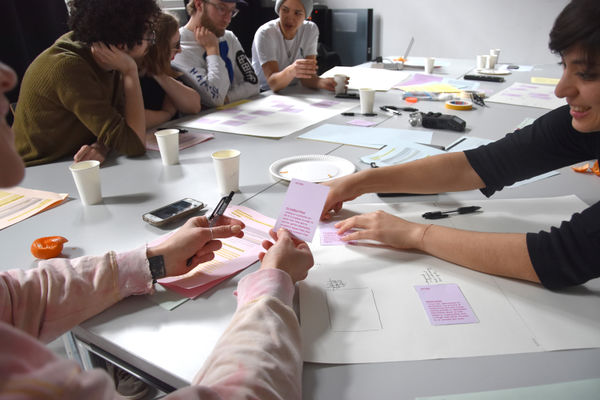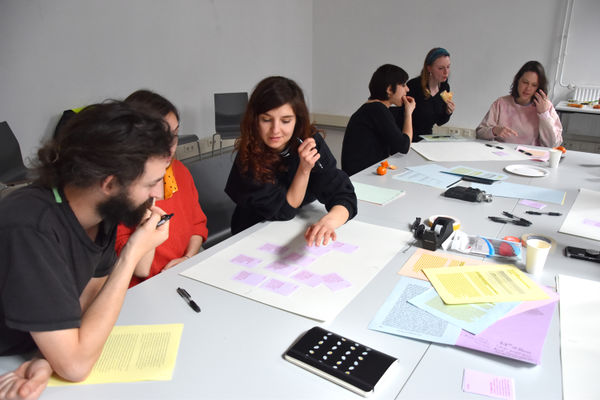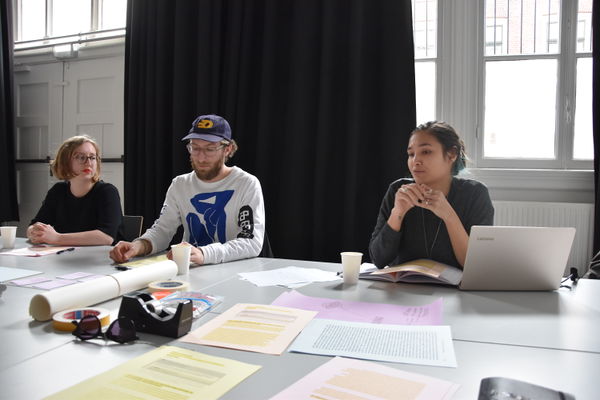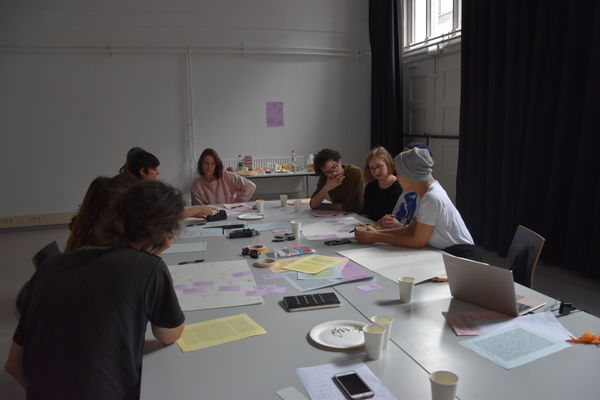User:Tash/grad workshop1: Difference between revisions
No edit summary |
|||
| Line 38: | Line 38: | ||
===== Discussion (10 mins) ===== | ===== Discussion (10 mins) ===== | ||
* | * important to note: group dynamics, context of audience, sense of urgency | ||
* in this group: the target seems to be the deciding factor in what makes something 'hard' or 'easy' to do, in other words, ends justify the means | |||
* most of the 10 terms are familiar — but mostly because they have seen it in done to others or themselves (not because they themselves have done it) | |||
* assumptions about trolling are rife! e.g. that there's only one type of trolling, that it encompasses only mischief, that it's not a job | |||
===== Photos ===== | |||
[[File:Workshop 0076.JPG|600px|frameless|center]][[File:Workshop 0071.JPG|600px|frameless|center]] | |||
[[File:Workshop 0068.JPG|600px|frameless|center]][[File:Workshop 0077.JPG|600px|frameless|center]] | |||
Latest revision as of 11:12, 9 April 2019
Unpacking Gender Roles: In Your Newsfeed
My research:
- the initial promise: social media as a democratic or emancipatory tool
- the reality: a space which rewards misogynists, supremacists and extremists
- genderpolitical aspects of online harrassment
Reading (15 mins)
- Ladymouth: Anti-Social-Media Art As Research
- What hostile spaces or communities do you have experience with online?
Mapping (20 mins)
My practical project:
- A critical multimedia game, which invites you to role-play characters on a social media platform, with the goal of infiltrating, exploring and disrupting its more hostile practices and spaces. Composed entirely of found techniques, scenarios and language used by the world’s most manipulative trolls, buzzers and campaign operatives, this game asks you to rethink your own relation to the medium.
To do:
- In small groups, explore these found techniques, which make up part of the game. Drawing on your personal experiences, map these techniques according to how easy / difficult you find them, and how familiar / unfamiliar you are with them.
Discussion (10 mins)
- important to note: group dynamics, context of audience, sense of urgency
- in this group: the target seems to be the deciding factor in what makes something 'hard' or 'easy' to do, in other words, ends justify the means
- most of the 10 terms are familiar — but mostly because they have seen it in done to others or themselves (not because they themselves have done it)
- assumptions about trolling are rife! e.g. that there's only one type of trolling, that it encompasses only mischief, that it's not a job







